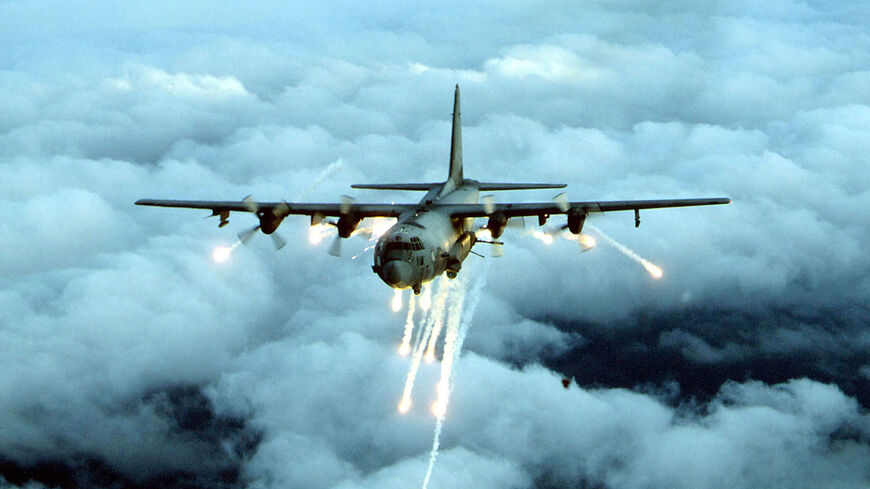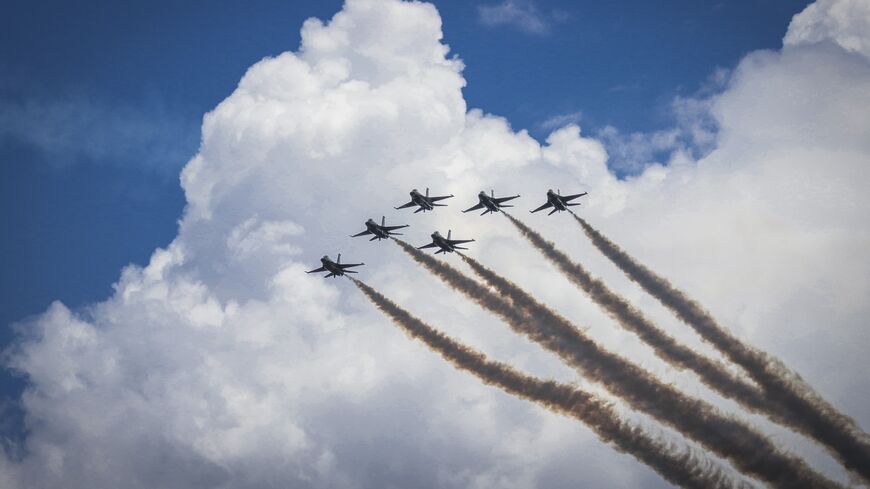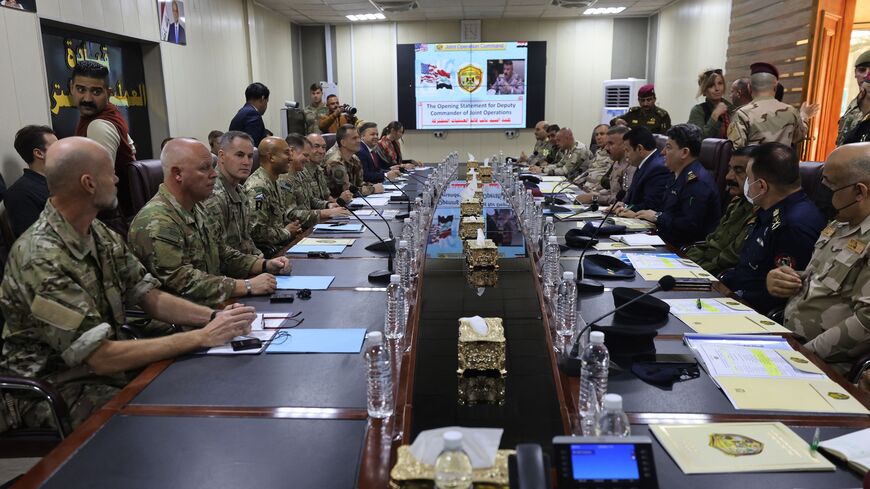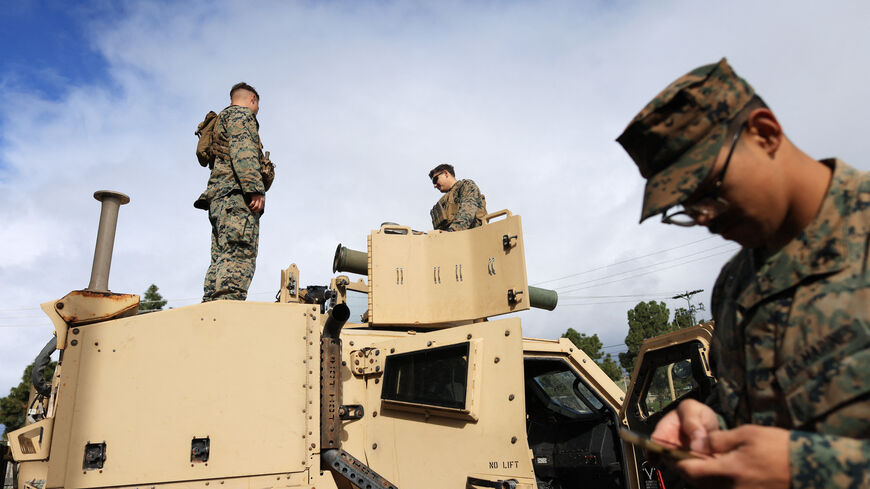Iraq slams latest US airstrikes on Kataib Hezbollah sites
Latest strikes put new pressure on Iraqi Prime Minister Mohammed Shia al-Sudani over the US troop presence in Iraq.
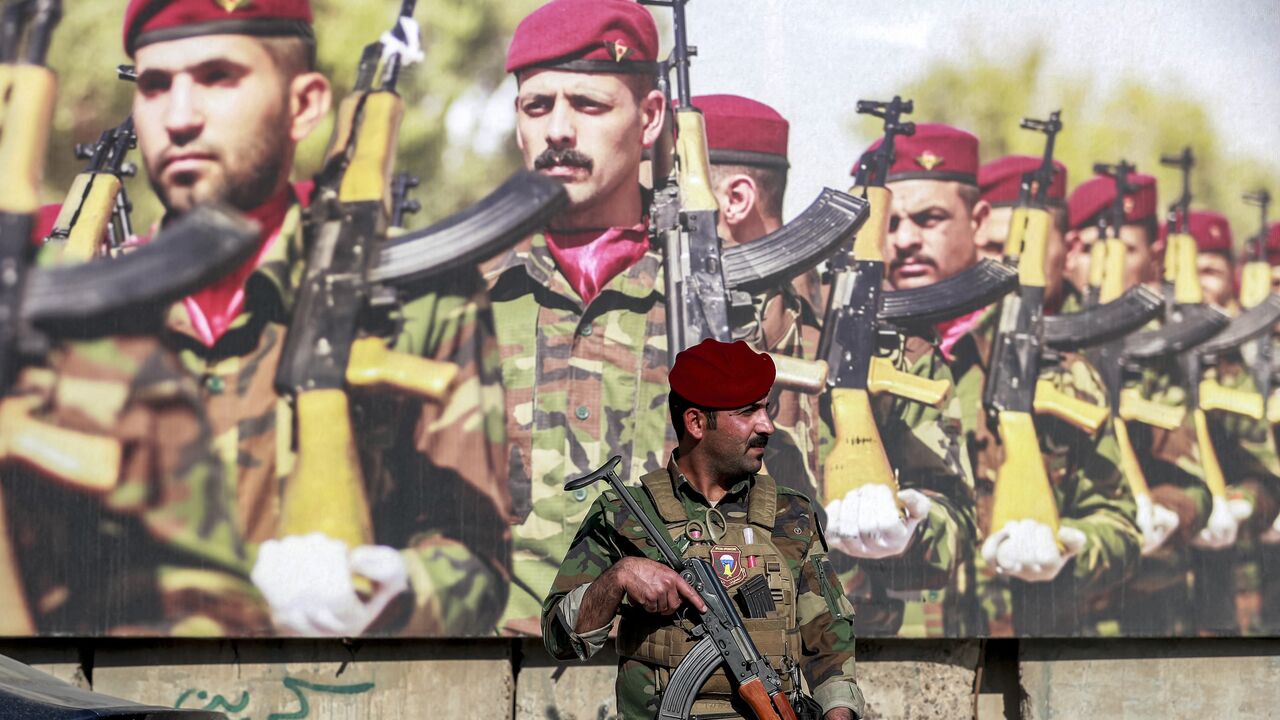
WASHINGTON — Iraq’s government on Wednesday condemned US airstrikes that the Pentagon said targeted three facilities used by Iran-backed militias in response to a ballistic missile attack on a US air base last week.
"This unacceptable act undermines years of cooperation, blatantly violates Iraq's sovereignty and leads to an irresponsible escalation,” read a statement released by Prime Minister Mohammed Shia al-Sudani’s office and signed by Iraqi armed forces spokesman Yahya Rasool.
“We will treat these operations as acts of aggression and take necessary actions to preserve the lives and dignity of Iraqis on their land that became safe and stable due to the sacrifices of our people,” the statement read.
What happened: The US military on Tuesday night launched airstrikes on three sites used by Kataib Hezbollah and other Iran-backed militias.
Defense Secretary Lloyd Austin called the strikes “necessary and proportionate” and said they came “in direct response to a series of escalatory attacks against US and coalition personnel in Iraq and Syria by Iran-sponsored militias.”
Iraqi media reported strikes in Jurf al-Nasr in central Iraq and al-Qaim, near a key crossing on Iraq’s far western border used by the militias to transport personnel and weaponry into Syria.
It was at least the fifth set of US airstrikes in Iraq since Iran-backed militias across Iraq and Syria resumed in mid-October near-daily rocket and drone attacks on bases used by US troops, allegedly in response to US support for Israel’s war in the Gaza Strip.
US troops in Iraq and Syria have come under fire at least 151 times since then, and successive waves of retaliatory US airstrikes have failed to halt the attacks.
On Sunday, at least a dozen rockets and ballistic missiles targeted the Ain al-Asad air base in Iraq’s Anbar province, seriously wounding an Iraqi service member and leaving at least four American military personnel with suspected traumatic brain injuries.
It was the largest single barrage involving ballistic missiles fired at US troops in Iraq since the beginning of the Israel-Hamas war.
Earlier this month, US strikes targeted and killed a senior Harakat al-Nujaba commander in a bid to halt the attacks.
Pentagon officials have sought to distance those incidents and attacks by Yemen’s Houthis on commercial shipping in the Red Sea from Israel’s war in Gaza, despite repeated statements by the Iran-backed factions that they see them as linked.
Earlier on Tuesday, Abu Ala al-Walai, head of the IRGC-backed Kata’ib Sayyid al-Shuhada militia, said the Iran-backed factions would open a new “phase of operations” against Israel and US forces in the region in response to the latest US airstrikes in Iraq.
The Houthis and a media front for IRGC-backed militias in the region have threatened to target US bases in the Gulf region, though the Pentagon has not confirmed any such attempts.
The Pentagon has authorized its top commander in the Middle East, Gen. Michael “Erik” Kurilla, to order the use of force when necessary to defend American military personnel.
Why it matters: The latest round of US strikes in Iraq is certain to increase domestic political pressure on Sudani’s government to oust the remaining 2,500 US troops in Iraq, who serve in an advisory role to the Iraqi military in the wake of the multinational war against the Islamic State (ISIS).
What’s next: The Iraqi prime minister earlier this month said that the justification for the US-led coalition’s presence in Iraq had come to an end, adding there was a need for dialogue with Washington to establish a timetable for the end of the counter-ISIS mission.
Officials in Washington have privately expressed doubt as to the sincerity of Sudani’s statements, as he faces significant pressure from Iran-aligned factions in parliament.
Know more: The Biden administration is reviewing its policy in Syria, where some 900 US troops are backing Kurdish-led forces keeping a lid on some 60,000 ISIS-linked detainees.



